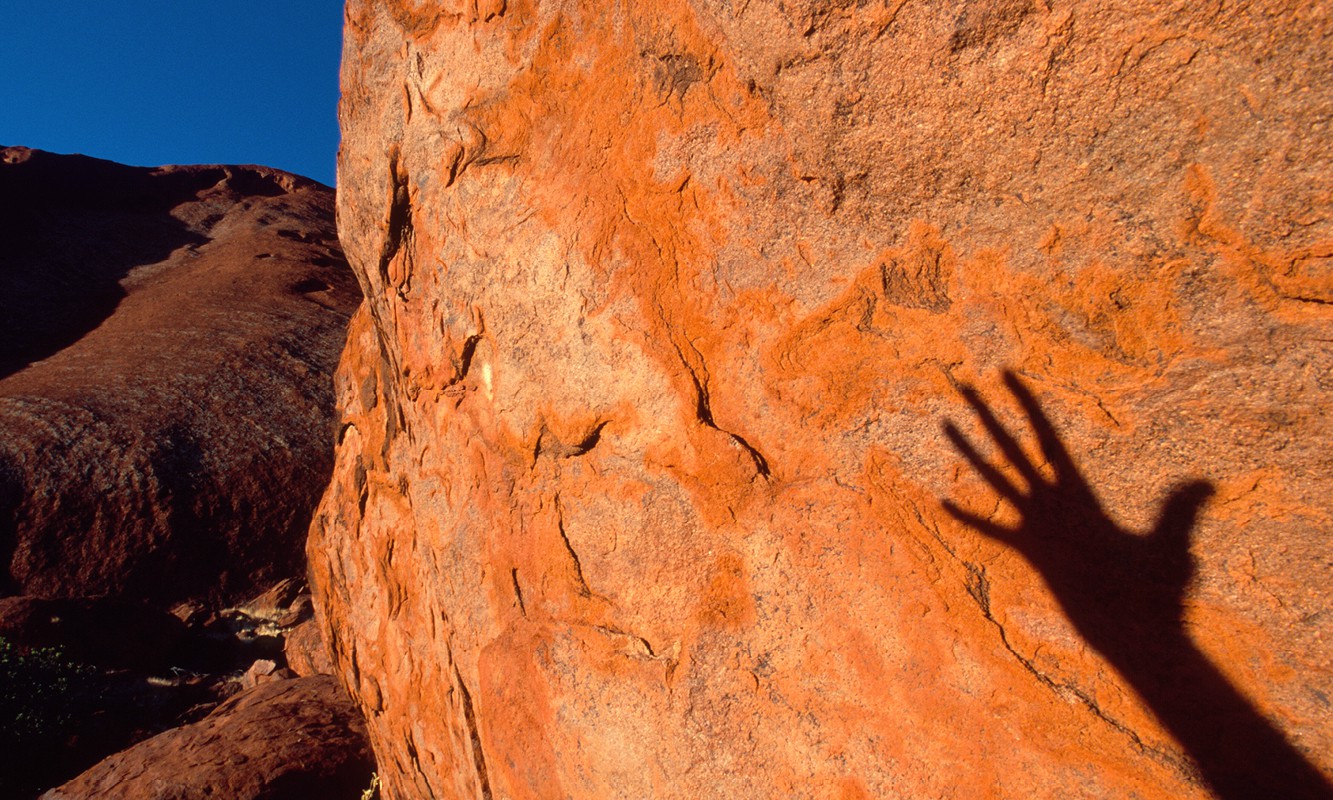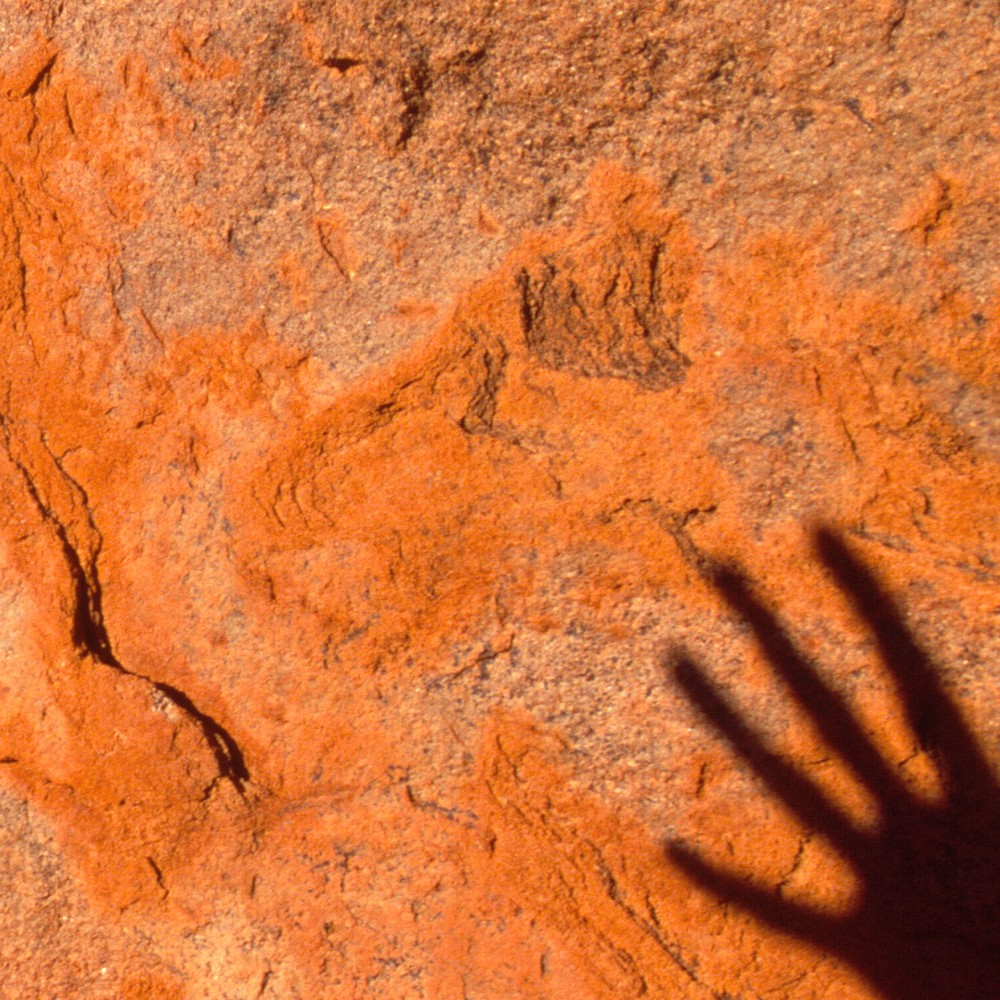In Love v Commonwealth (Love), Justice Gordon commenced her reasons for judgment with the following statement:1
“The fundamental premise from which the decision in Mabo v Queensland (No.2) proceeds – the deeper truth – is that the Indigenous peoples of Australia are the first peoples of this country, and the connection between the Indigenous peoples of Australia and the land and waters that now make up the territory of Australia was not severed or extinguished by European ‘settlement’.”
Her Honour later continued:2
“Aboriginal Australians are not outsiders or foreigners – they are the descendants of the first peoples of this country, the original inhabitants, and they are recognised as such. None of the events of settlement, Federation or the advent of citizenship in the period since Federation have displaced the unique position of Aboriginal Australians.”
In that case, the High Court was called upon to consider whether Aboriginal and Torres Strait Islander persons can fall within the scope of the ‘aliens’ power in section 51(xix) of the Constitution, and thereby be subject to deportation.
A majority of the court held that “Aboriginal Australians” (understood according to the tripartite test in Mabo (No.2)3) are not within the reach of the aliens power. That is the case even if the person holds foreign citizenship, and is not an Australian citizen under the Australian Citizenship Act 2007 (Cth).
More recently, in Minister for Immigration v Montgomery4 (Montgomery), the Minister and the Commonwealth Attorney-General (as supporting intervener) sought to reopen and overturn Love. Alternatively, the Minister argued that persons who had been culturally adopted into an Aboriginal or Torres Strait Islander society, but who had not shown that they were the biological descendant of an Aboriginal or Torres Strait Islander person, were excluded from the category of “Aboriginal Australians” set out in Mabo (No.2).
On 28 July 2022, the new Attorney-General, Mark Dreyfus QC, discontinued the appeal in Montgomery and announced that the Commonwealth would no longer seek to overturn Love.5
The place of Aboriginal and Torres Strait Islander persons in the Australian constitutional framework has yet to be fully resolved.
In this article, I will begin by outlining the scope of the Parliament’s power to determine membership of the Australian community, followed by an examination of the High Court’s reasoning in Love and its subsequent decision in Thoms v Commonwealth.6
I will conclude with some observations on the challenges of appropriately defining Aboriginal and Torres Strait Islander persons in a way that respects their identity and membership.
Background
Who is an alien?
The Constitution does not define what is meant by ‘Australian citizen’. Indeed, the drafters of the Constitution adopted the term ‘subject of the Queen’ in preference to ‘citizen’ or ‘Australian citizen’.
However, the Constitution does deal with the question by negative connotation, by the constitutional concept of alien. Section (xix) of the Constitution gives the Parliament power to regulate who should be admitted to formal membership of the Australian community and by what process.7
A statutory concept of Australian citizenship came into existence with the enactment of the Nationality and Citizenship Act 1948 (Cth), later renamed the Australian Citizenship Act 1948 (Cth). However, it was only in 1993 that the traditional hierarchical concept of allegiance to the Monarch was replaced.
The preamble inserted in 1993 defined Australian citizenship in terms of “formal membership of the community of the Commonwealth of Australia”. The preamble was retained unchanged in the Australian Citizenship Act 2007 (Cth).
Generally, a non-citizen is an alien. However, in Re Patterson; Ex parte Taylor8 (Patterson), a majority of 4-3 of the High Court held that there was an intermediate category of “non-citizen non-aliens”, consisting of British subjects who arrived in Australia before a certain date. There was disagreement over what this date was – either 1973 or 1987. Nevertheless, the majority held that these non-citizen non-aliens were not within the aliens power and could not be deported from Australia.
In Shaw v Minister for Immigration9 (Shaw), the Minister argued that this intermediate category of non-citizen non-aliens should be discarded. The Minister’s argument was accepted by a 4-3 majority of the High Court. The majority held that laws under s51(xix) can define who is an alien, the consequences of being an alien, and how the status of alien is removed by naturalisation. In this sense, citizenship – while a statutory concept – is the obverse of being an alien.10
The majority accepted that the Commonwealth Parliament does not have unlimited power to define who is an alien.11 However, they concluded that:12
“This case should be taken as determining that the aliens power has reached all those persons who entered this country after the commencement of the Citizenship Act on 26 January 1949 and who were born out of Australia of parents who were not Australian citizens and who had not been naturalised.”
Who is an Aboriginal or Torres Strait Islander person?
The Royal Commission into Aboriginal Deaths in Custody noted that, since the time of European ‘settlement’, governments have used “no less than 67 classifications, descriptions or definitions” to determine who is an Aboriginal or Torres Strait Islander person.13
Prior to Love, the definition of an ‘Aborigine’ had been considered by the High Court on only a few occasions. In Commonwealth v Tasmania,14 the High Court considered the definition for the purposes of s51(xxvi) of the Constitution, in relation to laws with respect to “the people of any race for whom it is deemed necessary to make special laws”. Justice Deane applied a three-part definition:15
“By ‘Australian Aboriginal’ I mean, in accordance with what I understand to be the conventional meaning of that term, a person of Aboriginal descent, albeit mixed, who identifies himself [or herself] as such and who is recognised by the Aboriginal community as Aboriginal.”
In Mabo (No.2), Justice Brennan adopted this approach in his leading judgment in relation to native title:16
“Membership of the Indigenous people depends on biological descent from the Indigenous people and on mutual recognition of a particular person’s membership by that person and by the elders or other persons enjoying traditional authority among these people.”
Love v Commonwealth
Love involved two plaintiffs, Mr Love and Mr Thoms. Mr Love was a citizen of Papua New Guinea, his place of birth. He had resided continuously in Australia since October 1985. He was descended from members of the Kamilaroi Nation, identified as a member of that nation, and was recognised as a member by one Kamilaroi elder. In May 2018, Mr Love was sentenced to 12 months’ imprisonment for assault occasioning bodily harm.
Mr Thoms was a citizen of Aotearoa, New Zealand, his place of birth. He held a special category visa, and had resided permanently in Australia since November 1994. He identified as, and was recognised as, a member of the Gunggari People. He was the holder of native title. In September 2018, Mr Thoms was sentenced to 18 months’ imprisonment for assault occasioning bodily harm.
Because both men were sentenced to periods of imprisonment of 12 months or more, each of their permanent residence visas were mandatorily cancelled. This cancellation revoked their right to remain in Australia as lawful non-citizens, and Mr Love and Mr Thoms were taken into immigration detention to await deportation from Australia. The mandatory cancellation of Mr Love’s visa was revoked in September 2018, and he was released from detention. Mr Thoms remained in immigration detention at the time of the High Court’s decision.
The Commonwealth argued that since Mr Love and Mr Thoms were not citizens, they were necessarily aliens, and therefore the Commonwealth had the power to deport them pursuant to section 51(xix) of the Constitution.
On 11 February 2020, the High Court, by a majority of 4-3, decided that ‘Aboriginal Australians’ could not be considered aliens for the purposes of s51(xix) of the Constitution, even if they were not citizens under the Australian Citizenship Act 2007 (Cth). The decision therefore marks a return to the intermediate category of non-citizen non-aliens in Patterson.
Despite providing separate reasons, the majority judges agreed on a central proposition as expressed by Justice Bell:17
“I am authorised by the other members of the majority to say that although we express our reasoning differently, we agree that Aboriginal Australians (understood according to the tripartite test in Mabo (No.2)) are not within the reach of the ‘aliens’ power conferred by s51(xix) of the Constitution.”
On the facts, Justice Nettle found that Mr Thoms was a recognised member of an Aboriginal community because of his status as a native title holder. However, his Honour found that the facts were unclear in respect of Mr Love, and the question of his status was remitted to the Federal Court.
I will examine the individual reasoning of each of the four majority justices in turn.18
Justice Bell
Justice Bell emphasised the significance of the recognition given in Mabo (No.2) to the spiritual nature of the relationship that Aboriginal and Torres Strait Islander persons have with country.19 In holding that the exercise of the Commonwealth’s legislative power does not extend to the exclusion of Aboriginal and Torres Strait Islander persons from the Australian community, her Honour observed:20
“It is not offensive, in the context of contemporary international understanding, to recognise the cultural and spiritual dimensions of the distinctive connection between indigenous peoples and their traditional lands, and in light of that recognition to hold that the exercise of the sovereign power of this nation does not extend to the exclusion of the indigenous inhabitants from the Australian community.”
Her Honour concluded that Aboriginal and Torres Strait Islander persons could not fall within the constitutional concept of alienage as “despite the circumstance of birth in another country, an Aboriginal Australian cannot be said to belong to another place”.21
Finally, Justice Bell did not regard Love as raising a consideration of the circumstances, if any, in which a person who does not satisfy the Mabo (No.2) tripartite test may nonetheless establish that he or she is an Aboriginal or Torres Strait Islander person.22
Justice Nettle
Justice Nettle’s starting point was the limitation recognised in Pochi v Macphee:23
“Parliament cannot, simply by giving its own definition of ‘alien’, expand the power under s51(xix) to include persons who could not possibly answer the description of ‘aliens’ in the ordinary understanding of the word.”
His Honour stated that it necessarily followed that although some individuals might be denied citizenship by statute, they would not be considered aliens in circumstances where they had a strong claim to the permanent protection of the Crown in right of Australia.24
Such obligations of permanent protection arose from the historical connection of Aboriginal and Torres Strait Islander societies to their country before the Crown’s acquisition of sovereignty.25 The common law could not, logically, acknowledge the authority of elders to determine the membership of an Aboriginal or Torres Strait Islander society and, at the same time, subject members of that society to a liability to deportation.26
Justice Nettle recognised the possibility that some Aboriginal and Torres Strait Islander persons would be unable to establish that they identify and are accepted as members of an Aboriginal or Torres Strait Islander society according to laws and customs continuously observed since the Crown’s acquisition of sovereignty. His Honour observed that:27
“If Parliament regards it as ‘invidious’ that a federal law differentiates between those two classes of Aboriginal Australians, it is well within the competence of the Parliament to ensure that the latter class is treated like the former.”
Justice Gordon
As set out above, Justice Gordon referred to the deeper truth arising from the decision in Mabo (No.2) that Aboriginal and Torres Strait Islanders are Australia’s First Peoples, and that the connection between them and the land and waters that make the territory of Australia was not severed by European ‘settlement’.28 This connection was described by her Honour as “spiritual or metaphysical”.29
Justice Gordon drew a clear distinction between the constitutional term ‘alien’ and the statutory concept of citizenship. Rejecting the reasoning in Shaw, her Honour stated that “a statutory concept cannot, in all cases, be the obverse of a constitutional concept”.30 Central to her Honour’s reasoning was the statement that:31
“The constitutional term ‘aliens’ conveys otherness, being an ‘outsider’, foreignness. The constitutional term ‘aliens’ does not apply to Aboriginal Australians, the original inhabitants of the country. An Aboriginal Australian is not an ‘outsider’ to Australia.”
Justice Gordon adopted the tripartite test from Mabo (No.2).32 Like Justice Bell, her Honour went on to state it was not necessary, in this case, to chart the outer limits of the concept.33
Justice Edelman
For Justice Edelman, the correct antonym of constitutional alienage is not statutory citizenship, but a “belonger” to the political community.34 Aboriginal and Torres Strait Islander persons, he stated, “belong to Australia and are essential members of the [political community]”.35
Justice Edelman recognised that:36
“[T]he Commonwealth Parliament does not have an unlimited ability to recite itself into a constitutional head of power (‘aliens’) by legislation with respect to a closely related but distinct subject matter (‘citizens’).”
His Honour observed that, while the application of alien may have evolved over time, this did not deny that it had an essential meaning which was fixed beyond legislative control.37
Justice Edelman cited Justice Brennan in Mabo (No.2), that “it is imperative in today’s world that the common law should neither be nor be seen to be frozen in an age of racial discrimination”.38 His Honour went on to say that the powerful spiritual and cultural connection that Aboriginal and Torres Strait Islander persons have with the land is, by definition, a powerful spiritual and cultural connection with the defined territory of Australia. This connection provides attachment to the political community independent of citizenship legislation.39
Echoing the comments of Justice Bell and Justice Gordon, Justice Edelman stated that the tripartite test in Mabo (No.2) was not set in stone.40
Thoms v Commonwealth
In Love, the High Court remitted a claim by Mr Thoms for damages for wrongful imprisonment to the Federal Court for determination. The Federal Court ordered that the question of whether the Mr Thoms’ detention was unlawful be heard and determined separately. That question was then removed back into the High Court.
Mr Thoms argued that his detention was unlawful because section 189(1) of the Migration Act 1958 (Cth) was not supported by section 51(xix) of the Constitution in its application to a person who is reasonably suspected of being an unlawful non-citizen but who is in fact not an alien.
On 8 June 2022, the High Court unanimously rejected the Mr Thoms’ argument. All of the justices held, consistently with the court’s earlier decision in Ruddock v Taylor41 (Ruddock), that section 189(1) could validly apply to non-aliens who are reasonably suspected of being unlawful non-citizens.
Assessing the reasonableness of the officer’s suspicion entailed considering what was known or reasonably capable of being known by that officer at the time the person was detained. The officers who detained Mr Thoms knew he was a New Zealand citizen whose visa permitting him to remain in Australia had been cancelled. Since the officers did not know, nor could reasonably have known, that the High Court would later decide in Love that Mr Thoms could not be an alien due to his status as an Aboriginal Australian, Mr Thoms’ detention was lawful.42
The High Court’s decision confirms the application of Ruddock, until 11 February 2020, to Aboriginal and Torres Strait Islander persons who are non-citizen non-aliens, such as Mr Thoms (and Mr Love).
Conclusion
The majority judgments in Love build on the recognition by the common law of the special and unique connection that Aboriginal and Torres Strait Islander persons have with the land and waters of Australia.
As the junior counsel for Mr Love and Mr Thoms have written, “that unique connection will sometimes have constitutional significance”,43 and the High Court may in future cases uncover yet further legal consequences flowing from this connection.
While the court has consistently rejected the existence of Aboriginal and Torres Strait Islander sovereignty, connection to country is at the core of the spiritual notion of sovereignty expressed in the Uluru Statement from the Heart:44
“This sovereignty is a spiritual notion: the ancestral tie between the land, or ‘mother nature’, and the Aboriginal and Torres Strait Islander peoples who were born therefrom, remain attached thereto, and must one day return thither to be united with our ancestors. This link is the basis of ownership of the soil, or better, of sovereignty. It has never been ceded or extinguished, and co-exists with the sovereignty of the Crown.”
Even though the common law can be relevant to constitutional interpretation, there is no reference to Aboriginal and Torres Strait Islander persons in the Constitution. Five years on from the Uluru Statement from the Heart, constitutional recognition of their unique connection with Australia is a matter of ongoing debate.
The continued reliance on “biological descent” in the Mabo (No.2) test, while not finally determined by the High Court, may in time produce considerable criticism. Writing extra-curially, former Chief Justice Robert French AC made the point that “[c]ourts of law are not good places to decide whether a particular person or group of people answer the description ‘Aboriginal’”.45
In Shaw v Wolf, Justice Merkel observed that since issues of Aboriginal and Torres Strait Islander identification involve an important aspect of self-determination, it is best left for bodies with Aboriginal and Torres Strait Islander representation:46
“It is unfortunate that the determination of a person’s Aboriginal identity, a highly personal matter, has been left by a parliament that is not representative of Aboriginal people to be determined by a court which is also not representative of Aboriginal people. Whilst many would say that this is an inevitable incident of political and legal life in Australia, I do not accept that that must always be necessarily so. It is to be hoped that one day if questions such as those that have arisen in the present case are again required to be determined that that determination might be made by independently constituted bodies or tribunals which are representative of Aboriginal people.”
Justice Nettle’s comments in Love about the potential need for legislation to address the inability of some Aboriginal and Torres Strait Islander persons to satisfy the tripartite test, through dispossession and dispersion, may also have merit. Parliament is able to take the High Court’s decision and build on it.
Glen Cranwell is a member of the Queensland Civil and Administrative Tribunal, and a former member of the Administrative Appeals Tribunal. The author gratefully acknowledges the assistance of Magistrate Jacqui Payne and Member Talitha Burson in preparing this article. The views expressed are those of the author.
Footnotes
1 (2020) 270 CLR 152, [289] (emphasis in original) (citations omitted). See also [70] (per Bell J).
2 Ibid, [335].
3 Mabo v Queensland (No.2) (1992) 175 CLR 1.
4 [2022] HCA Trans 51 and 52.
5 Elizabeth Byrne, ‘Commonwealth drops attempt to challenge High Court ruling that Aboriginal Australians cannot be deported’’, ABC News (online, 28 July 2022) <abc.net.au/news/2022-07-28/government-drops-attempt-to-deport-aboriginal-australian/101279636>.
6 [2022] HCA 20.
7 Re Minister for Immigration and Multicultural Affairs; Ex parte Meng Kok Te (2002) 212 CLR 162, [24] (per Gleeson CJ).
8 (2001) 207 CLR 391.
9 (2003) 218 CLR 28. See generally Glen Cranwell, ‘Casenote: Shaw v Minister for Immigration’ (2004) 11 Australian Journal of Administrative Law 151.
10 Ibid, [2].
11 Ibid, [9].
12 Ibid, [32]. But see Chetcuti v Commonwealth (2021) 95 ALJR 704.
13 Royal Commission into Aboriginal Deaths in Custody, National Report (Commonwealth of Australia, 1991) [11.12.5].
14 (1983) 158 CLR 1.
15 Ibid, 274.
16 (1992) 175 CLR 1, 70.
17 (2020) 270 CLR 152, [81].
18 See generally Stephen Keim, ‘Reflections on Love and Thoms v The Commonwealth’ (Seminar Paper, Monash Law and the Australian Association of Constitutional Law, 3 June 2020) 4-9. Keim SC was senior counsel for Mr Love and Mr Thoms.
19 (2020) 270 CLR 152, [70].
20 Ibid, [73] (citation omitted).
21 Ibid, [74].
22 Ibid, [80].
23 (1982) 151 CLR 101, 109 (per Gibbs J).
24 (2020) 270 CLR 152, [252].
25 Ibid, [278].
26 Ibid, [272].
27 Ibid, [282].
28 Ibid, [289].
29 Ibid, [290].
30 Ibid, [305] (emphasis in original).
31 Ibid, [296].
32 Ibid, [366].
33 Ibid, [368].
34 Ibid, [394].
35 Ibid, [398].
36 Ibid, [395].
37 Ibid, [399].
38 (1992) 175 CLR 1, 41-42.
39 (2020) 270 CLR 152, [450].
40 Ibid, [458].
41 (2005) 222 CLR 612.
42 [2022] HCA 20, [44] (per Kiefel CJ, Keane and Gleeson JJ).
43 Kate Slack and Arron Hartnett, ‘Reflections on the recent High Court decision in Love v Commonwealth of Australia [2020] HCA 3: The Constitution, Indigenous rights and immigration law’ (2020) 2 Balance (Journal of NT Law Society) 16, 19.
44 Referendum Council, ‘Uluru Statement from the Heart’ (First Nations National Constitutional Convention, 26 May 2017) <ulurustatement.org/the-statement/view-the-statement/>
45 Robert French, ‘Aboriginal Identity – The Legal Dimension’ (2011) 15 Australian Indigenous Law Reporter 18, 19.
46 (1998) 163 ALR 205, 268.















Share this article